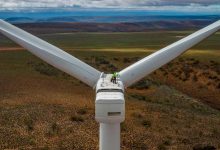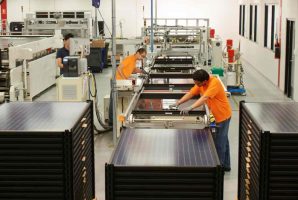A group of Australia’s leading clean energy investors has slammed the Australian Energy Market Commission’s continued efforts to push controversial reforms to transmission network access, saying they will stall new wind and solar investment and ultimately lead to higher electricity prices for consumers.
The Clean Energy Investor Group (CEIG), in a submission to the AEMC’s consultation on the proposed reforms, warn the proposed changes – which they see as a revival of the controversial Coordination of Generation and Transmission Investment (COGATI) proposal – could result in the cancellation of up to 3,000MW of wind and solar project, and add billions to the costs of others.
“This is a perverse outcome for investors and consumers, and quite frankly it is difficult to understand why the AEMC is persisting with this proposal. It highlights again why it should not continue with its proposed grid access changes,” CEIG chair Simon Corbell, the former ACT climate and energy minister, said in a statement.
The CEIG represents a number of leading Australian investors and developers of wind and solar projects and has a membership that includes BayWa, Neoen, Partners Group, John Laing, Lighthouse Infrastructure, Macquarie Capital, RWE Renewables and Windlab.
The group says the uncertainty around access to transmission networks for new wind and solar projects, and our who who will be responsible for the cost of new network investment, is creating substantial investment risk, and this in turn is creating barriers to new renewable energy investment that would ultimately lead to higher energy prices.
They say the AEMC should be embracing the creation of renewable energy zones, as proposed by various state governments and supported by the Australian Energy Market Operator.
The main problem with the AEMC’s plan is the proposed shift to locational marginal pricing, and the creation of financial transmission rights, which the investors say would only exacerbate this uncertainty and could result in the cancellations of as much as 3,000MW of proposed wind and solar projects.
Modelling commissioned by the CEIG from Baringa Partners says the proposed reforms will create substantial uncertainty for investors around the future viability of projects, causing cost increases and delays, leaving both investors and electricity consumers worse off.
“Cost of capital increases for investors will flow through to wholesale price impacts for consumers. This is detrimental to both clean energy generators and energy consumers and highlights why the AEMC must revisit its proposed grid access proposals,” Corbell said.
“There will be a major slowdown in new renewable energy development across the National Electricity Market due to these market rule change proposals. This means thermal generation stays in the market for longer, and overall greenhouse gas emissions in the NEM will be 18% higher compared to the status quo – with a $500 million increase in the social cost of carbon.
The CEIG says its modelling showed that State governments would need to step in and support new investment to ensure that State renewable energy targets can be met. The CEIG submissions reflect similar arguments made by the Clean Energy Council, which said the proposed COGATI reforms would have a ‘chilling effect’ on new clean energy investment.
The investor group said the energy market regulators should be prioritising the development of Renewable Energy Zones, as have been announced by both the New South Wales and Queensland governments, as a better process for coordinating new network investment with the construction of new wind, solar and storage projects.
“Victoria, Queensland and NSW have all adopted renewable energy targets or are supporting major growth in new renewable energy zones. Due to the increased cost of capital caused by these reforms, states will have to pay more for new renewable energy projects to enter the NEM. State renewable energy targets are clearly at risk if the AEMC persists with these proposals,” Corbell added.
“Renewable Energy Zone development must continue to be prioritised as a significant market reform to support to new investment in renewable energy projects at a time when they will be key to Australia’s economic recovery.”
The AEMC is aiming to finalise the consideration of the proposed changes, as well as reaching a final decision on proposed rule changes, next year.










